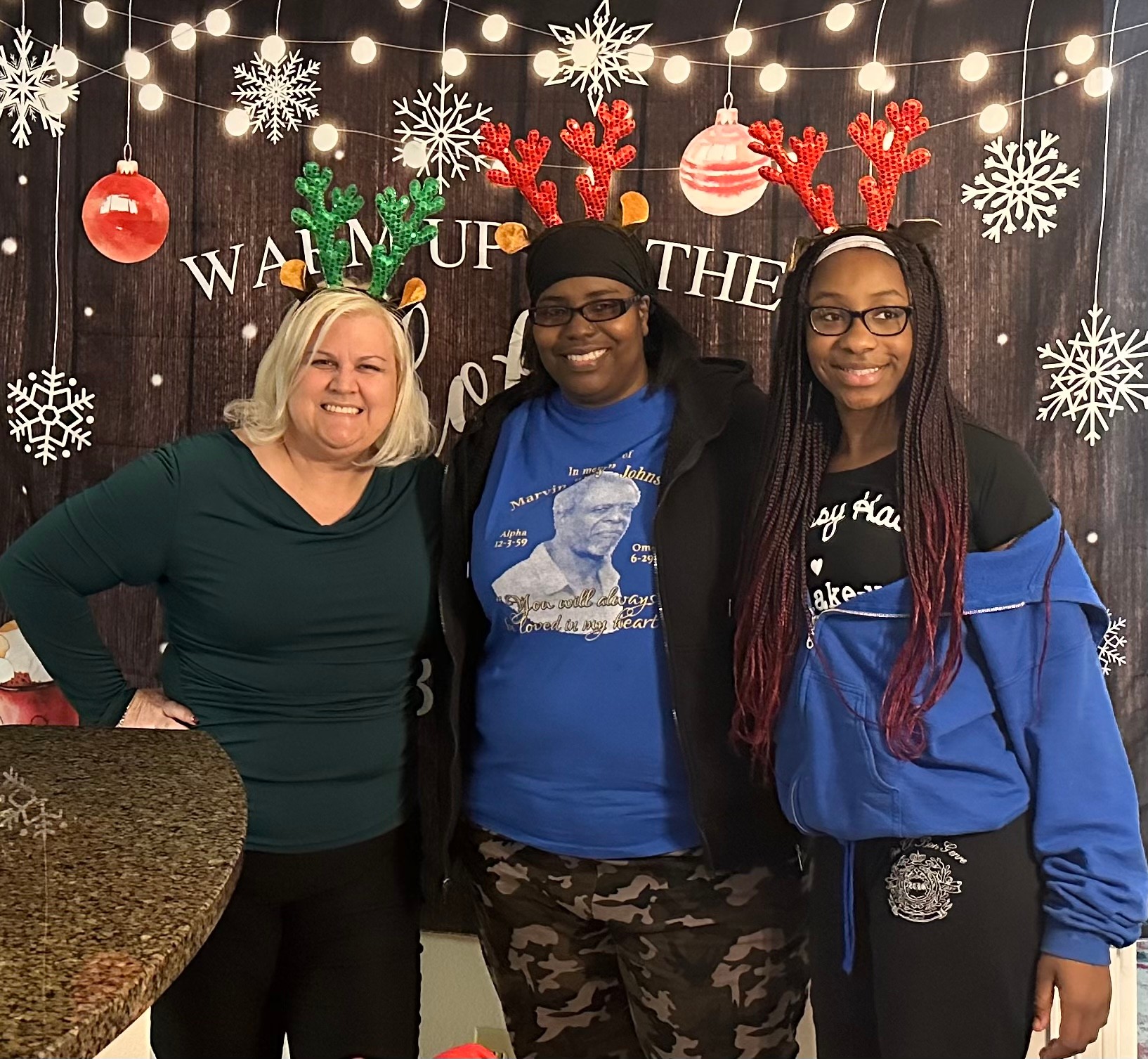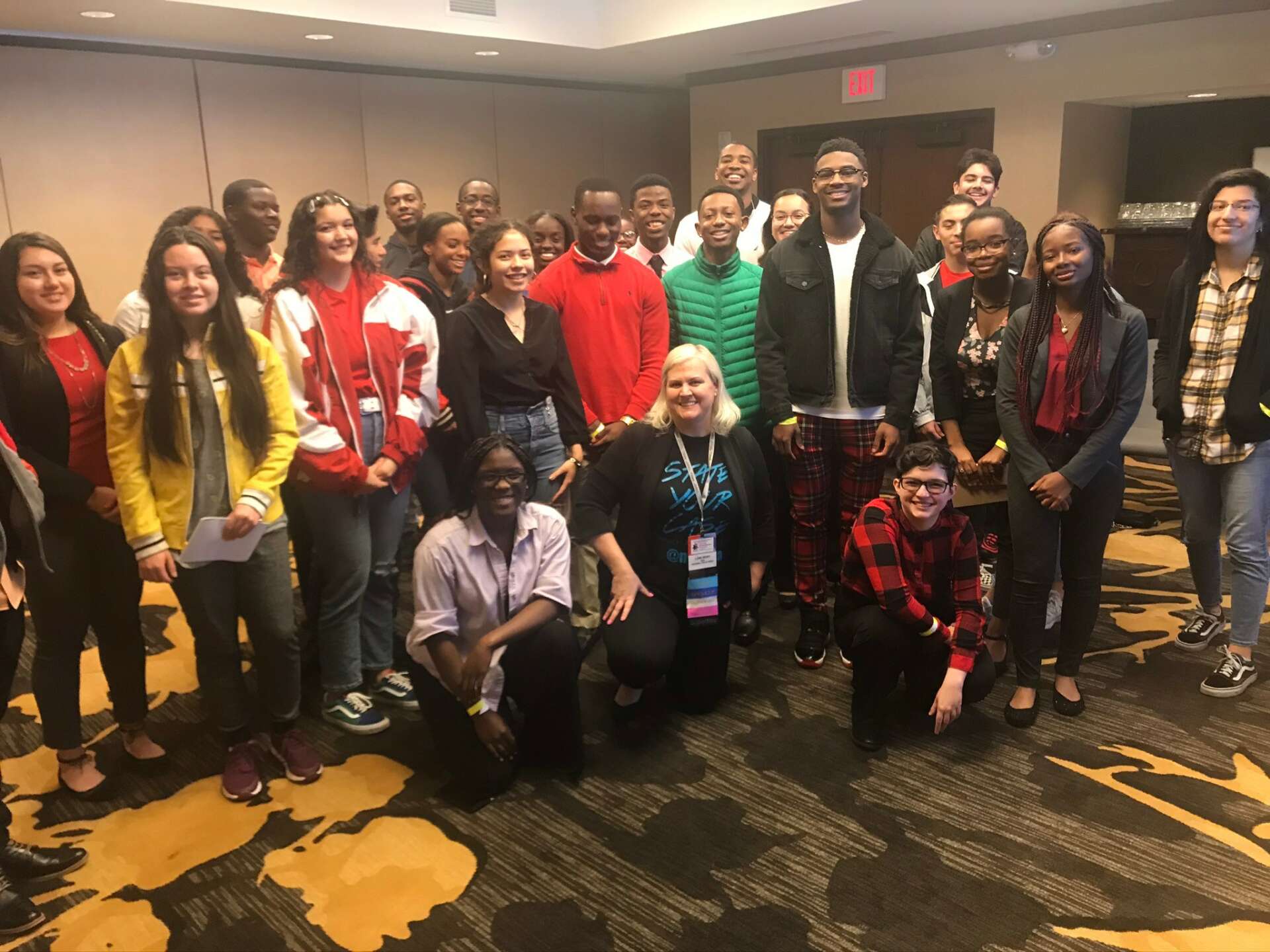We recently connected with Lori Hoff and have shared our conversation below.
Lori, thanks for taking the time to share your stories with us today We’d love to have you retell us the story behind how you came up with the idea for your business, I think our audience would really enjoy hearing the backstory.
This story starts with a 5-year-old little girl hiding under her bed from her Abusive Father. This little girl was so scared and afraid of doing the wrong thing. She was fearful of saying the wrong thing. She didn’t know where to turn. That little girl was me, my father was bipolar schizophrenic, and I grew up needing to be perfect from a very early age, and since that was not possible, I grew up abused. Fast forward to my teenage years, I was blessed to have my grandma raise me until tragedy struck and my grandma (my best friend) was taken from me in a car accident. This incident left me hopeless, depressed, and suicidal. Eventually, anger was all I could feel—bitternessfrom the abuse, the loss, and the struggle for survival. The pain I felt was so intense I would push it down so I didn’t have to feel it, but I couldn’t hide those emotions. In my early twenties, I pulled myself out of despair by working hard and reading a lot.
I started the non-profit Outreach Ministries International (OMI) to be there for all the youth that felt like me and to remove the stigma of mental health. I spent years supporting youth, and in 2015 we launched National Youth Week, a week-long celebration helping youth potential and purpose in June. We are all things nywusa. One of the pillars was Innovation. We started to ask how to use Innovation to solve youth’s social problems. We created a survey that measures Conflict, Anger, and Self Esteem called CASE. The data collected from schools and youth all over (before the Pandemic) proved what we already knew were significant trouble areas for youth.
We focus on creating a safe space to discuss their emotions and save lives. We are meeting a need that many organizations don’t know how to address. We started a train-the-trainer program, teaching community Leaders how to talk to youth about these areas. Some of the quotes from our youth are, “You make Mental Health fun” CASE has not taught me who I am but how I am.” We spend tenweeks walking young people through a discovery of their emotions and how to be vulnerable with the right people and be healed from their trauma. Some people would feel bad about the pain and suffering they experienced early on. I thank God because it has allowed me to help many youths, be non-judgmental and save lives. I started the train-the-trainer model because there is limited representation in underserved communities and a lack of resources. Our program teaches others who want to make a difference in their community and reach our youth. One of the unique ways we get youth to open up during events is by putting different emotions on a fun wheel. When they spin the wheel, whatever emotion it lands on, they need to discuss the last time they experienced that emotion. Some young people are learning what different ‘emotions mean, and some are excited to share their personal experiences. We use Art, Acting, and Creative ways to teach and discuss emotions. Another tool we use is teaching adults to share their truth to create a safe space for our youth. I love our approach because it removes the stigma and helps to teach our youth how to have healthy relationships. I believe healthy relationships build strong communities.




Lori, before we move on to more of these sorts of questions, can you take some time to bring our readers up to speed on you and what you do?
I am a Leader, Mentor, and Team member. I am very passionate about helping all youth live free from pain and have healthy relationships. I have raised young people off the street, and I am affectionately called Mama Lori by many youths. I consider that an honor because I physically couldn’t have children my own children, so I love all children and treat them like my own. I have an ACE score of 8, meaning I shouldn’t be able to keep a joband always have complications. I have been a Leader with AT&T for over 28 years, and I founded OMI 23 years ago. We are all volunteer-run, and we accomplish the same as organizations with paid staff; that is because everyone who joins us puts their heart and soul into everything they do to help others. We have a media team, technology team, program team, and newsletter team, all supported by youth. I firmly believe youth will rise to the challenge with the expectations you set for them. We are solving the suicide and homicide crisis in our youth by teaching them the power of their purpose.




How’d you build such a strong reputation within your market?
I think what helped build our reputation was a couple of things. First, we took the time to research and talk to students, teachers, counselors, parents, and youth. We surveyed them on the one thing they would ask youth about Anger. We asked if they dealt with Conflict. We took all that data and created a survey to measure where our youth are on the scale of being well or needing help 87% needed help with anger pre-covid. We then partneredwith schools to build a reputable and quality product, whether it was a workshop or a non-profit booth. We then worked with the teachers and community leaders and gave our support. We never shared the survey data from the students because it is anonymous, and it helped gauge programs we could bring to assist with social-emotional learning. We pride ourselves on being honest, and we always keep our word. These seem like little things or things you think everyone does, but they don’t. We strive for excellence in everything we do and teach that to our volunteers.




Have you ever had to pivot?
A time we had to pivot was during covid. We always had about 20 local volunteers, and I would personally interview all of them. When Covid happened, we had over 60 people sign up in one week, and I interviewed all of our new volunteers individually. I was exhausted. During the Pandemic, we started to train college students to lead our teams, and at one point, we had over 120 people. We have pivoted to meet the demand by having the team leads do their own interviews; then, I had a very zealous 10th grader that automated 75% of our onboarding process. I encouraged everyone. There are people on your team that have ideas and dreams to make things better, and what I think makes us successful is we allow everyone to have a voice and continue to make us better. We are an organization for youth by youth.
Contact Info:
- Website: Www.nywusa.com
- Instagram: Nywusa
- Facebook: Nywusa17
- Twitter: Nywusa
- Youtube: National youth week


